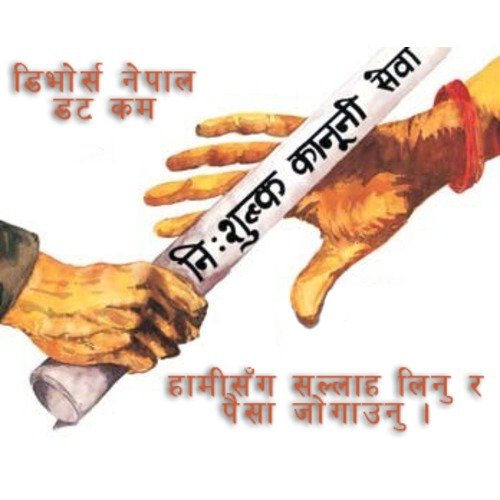Best Family Lawyers in Nepal
Share your needs with us, get contacted by law firms.
Free. Takes 2 min.
Free Guide to Hiring a Family Lawyer
Or refine your search by selecting a city:
List of the best lawyers in Nepal
About Family Law in Nepal
Family law in Nepal governs the legal aspects associated with family relationships, including marriage, divorce, child custody, inheritance, and adoption. This branch of law is critical in addressing and resolving disputes that arise within family units. Nepalese family law is heavily influenced by local customs, religious norms, and judicial precedents, creating a unique blend of traditional and modern legal principles. The Muluki Civil Code, enacted in 2017, serves as the primary legal framework guiding family law in Nepal, replacing the previous Muluki Ain.
Why You May Need a Lawyer
While some family matters can be resolved informally within the family, there are certain situations where legal assistance is crucial. Common scenarios where legal help might be necessary include:
- Complex divorce proceedings, particularly those involving disputes over property or custody of children.
- Legal guardianship or adoption processes that require court approval.
- Disputes concerning inheritance or division of family property.
- Cases of domestic abuse or violence that necessitate protective legal measures.
- Child custody and visitation rights that need formal legal settlement.
- Arranging financial support such as alimony or child support.
Local Laws Overview
The legal system in Nepal has several key aspects relevant to family law:
- Marriage: The legal age for marriage is 20 years, and both parties must consent to the union.
- Divorce: Grounds for divorce include mutual consent, adultery, domestic violence, and irreconcilable differences.
- Child Custody: A child's best interest is the guiding principle, with both mothers and fathers eligible for custody rights.
- Inheritance: Nepal follows a patriarchal system where sons traditionally inherit property, although recent laws have aimed to provide equal rights to daughters.
- Domestic Violence: Legal provisions exist to protect individuals from domestic violence, offering various protective measures and legal recourse.
Frequently Asked Questions
1. What is the legal marriageable age in Nepal?
The legal marriageable age in Nepal is 20 years for both males and females.
2. Can women inherit property in Nepal?
Yes, recent amendments in Nepalese law have enabled women to inherit property equally as men.
3. How is child custody decided?
Child custody is decided based on the best interests of the child, considering factors such as the child's age, health, and emotional needs.
4. Is divorce by mutual consent possible?
Yes, divorce by mutual consent is permitted under Nepali law.
5. What should one do in case of domestic violence?
Victims of domestic violence should report to the police and can seek protective orders and legal assistance.
6. How can a foreigner marry a Nepali citizen?
Foreigners can marry Nepali citizens by fulfilling residency requirements and obtaining necessary documents like a no-objection letter from their embassy.
7. What are the consequences of child marriage?
Child marriage is illegal and punishable by law, leading to potential annulment and legal action against those involved.
8. How does the adoption process work in Nepal?
The process involves obtaining an adoption order from the court, following a thorough evaluation by governmental agencies.
9. What grounds are recognized for divorce?
Grounds for divorce include physical or mental cruelty, desertion, infidelity, and chronic disease, among others.
10. How can one alter a family court's decision?
A family court's decision can be challenged by filing an appeal in a higher court within a stipulated time frame.
Additional Resources
For those seeking further guidance or legal support in matters related to family law in Nepal, the following resources can be useful:
- The National Women's Commission, which provides support to victims of domestic violence.
- The Legal Aid Nepal organization offers free or subsidized legal services to individuals in need.
- The Ministry of Women, Children, and Senior Citizens provides resources and information on family-related services.
- Local Bar Association offices can assist in locating legal practitioners specializing in family law.
Next Steps
If you find yourself in need of legal assistance concerning family matters in Nepal, consider taking the following steps:
- Identify the specific legal issue you are facing and gather all relevant documentation.
- Consult with a qualified family lawyer to understand the legal options available to you.
- Contact local legal aid organizations if you require financial assistance or cannot afford private legal counsel.
- Engage with community support groups for emotional support and guidance.
- Stay informed of your rights and responsibilities under Nepalese law to ensure the best possible outcome.
Lawzana helps you find the best lawyers and law firms in Nepal through a curated and pre-screened list of qualified legal professionals. Our platform offers rankings and detailed profiles of attorneys and law firms, allowing you to compare based on practice areas, including Family, experience, and client feedback.
Each profile includes a description of the firm's areas of practice, client reviews, team members and partners, year of establishment, spoken languages, office locations, contact information, social media presence, and any published articles or resources. Most firms on our platform speak English and are experienced in both local and international legal matters.
Get a quote from top-rated law firms in Nepal — quickly, securely, and without unnecessary hassle.
Disclaimer:
The information provided on this page is for general informational purposes only and does not constitute legal advice. While we strive to ensure the accuracy and relevance of the content, legal information may change over time, and interpretations of the law can vary. You should always consult with a qualified legal professional for advice specific to your situation.
We disclaim all liability for actions taken or not taken based on the content of this page. If you believe any information is incorrect or outdated, please contact us, and we will review and update it where appropriate.
Browse family law firms by service in Nepal
Nepal Attorneys in related practice areas.
Browse family law firms by city in Nepal
Refine your search by selecting a city.

















